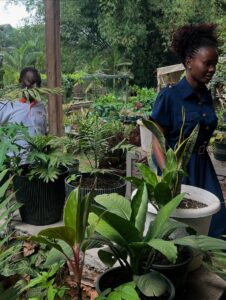In Uganda, heavy down pours have become stack reminders of the recurrent problem of flash floods. Many argue that flooding a global problem experienced in the developed world. True! However, that would be an easy scapegoat in Uganda’s case where the causes of flooding are largely attributed to our own negligence, weak institutional frameworks, poor infrastructure, compounded lack of political will and elite state capture.
A quick scan through social media reinforces the public outcry about plastic pollution, particularly caused by poor disposal of single-use plastic bags (kaveera) and bottles. Single-use plastics have indubitably simplified our ways of life; however, overuse, over-production, poor disposal and inefficient waste management systems have raised serious threats to human safety, environmental security and ecosystem integrity.
Single-use plastics are non-biodegradable, as they cannot be fully absorbed into the soil. As a result of poor waste disposal, plastics end up in already inadequate and malfunctional water drainage systems; hence causing water clogging and flooding on rainy days. Single-use plastics undermine the integrity of ecosystems as they affect water infiltration and absorption, and release minute quantities of plastics, which are detrimental to biodiversity and cause water contamination.
In 2002, Bangladesh was the first country to implement a total ban on single-use plastics, which set the precedence elsewhere. In Africa, only 16 countries have passed total bans on use, marketing and importation of plastic bags, including Kenya, Tanzania and Rwanda. Uganda falls in the category where we have laws against use of plastic bags, but implementation has remained a thorny issue. This can be attributed to lack of political will and public awareness, and unclear policy direction, etc. This article appeals for a swifter process of transition of all stakeholders – the public, manufacturers, civil society and government – into the use of sustainable carrier bags in Uganda.
Considerably, the transition of the public, who are the end-users of single-use plastic bags and bottles, is very critical. Adoption of biodegradable carrier bags for shopping, for instance, requires aggressive awareness campaigns about the health and environmental risks posed by single-use plastics so that the public can appreciate the link between their behaviour and consequent flash floods. The financial implication of this transition should be highlighted as well, given that biodegradable bags may come at a small cost, estimated at Ush. 500. However, sustainable practices, such as re-use, reducing and re-cycling (3Rs) can address this challenge as people can adopt the habit of re-using their paper bags when going to the local markets and grocery stores.
Transition will also require disruptive and innovative campaigns, for instance, sticking anti-litter posters in commuter taxis, public buses and taxi parks as a stark reminder to the public not to litter plastics, but rather dispose them at designated points. Disposal of plastic bottles at source, for instance, retail shops and markets; and public buildings is most ideal as it eases collection by plastic re-cyclers. Pope Francis encourages environmental education in schools, where learners are cultured into sustainable practices and caring for the environment.
Needless to say, production and distribution of plastics is a big business; hence total ban of single-use plastics could imply business disruption. However, strategic planning helps businesses to convert such inevitable threats into prospective opportunities. In this case, businesses can smoothly transit from dealing in single-use plastics to biodegradable paper bags. In fact, these businesses have a moral obligation to mitigate the health and ecological risks posed by use of plastics; and to ensure proper disposal and management. On their part, the government has an upper hand in overseeing these multi-faceted transitions through offering necessary support to manufacturers and distributors of plastics; but most importantly, the political will to enforce the legal framework on plastics use, production and disposal.
Noteworthy, the total ban of single-use plastics is not a silver bullet to the problem of flash floods in Kampala and other places; however, it will be a progressive step in the addressing plastic pollution of our environment and natural ecosystems.
Augustine Bahemuka
Research Editor – Laudato Youth Initiative
abahemuka@outlook.com














